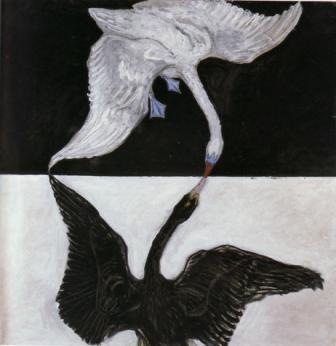Between Worlds

Have you ever felt in between?
You’ve been walking for a long time, unable to see where you started or where you're heading, and then, suddenly, you become aware of it.
This feeling is liminality. It’s the sensation of floating in transition, moving while feeling still.
Spaces become liminal when they carry the heaviness of waiting, yet serve as perfect metaphors for emotional transformation.
Poetry is a liminal language too. It blooms thanks to those pauses between words, in the silences beyond the lines, over any structured form.
Liminality can be captured in the shift from day to night, in the spiral from childhood into adulthood, in the boundary where life bleeds into death.
Jaya Savige in Duende focuses exactly on that, playing with that space between awakeness and sleep:
"lamp off / day’s bright splinter almost extracted"
It’s in these moments that memories come searching for you, and find you.
In this archive tour, I’ve chosen poems that don’t just describe liminal spaces as evanescent; but often as haunted, by absence.
Absence is not just about what’s missing. It’s the silence after a loved one’s name is spoken, the hollow left by loss, or the painful gap between words that fail to describe grief.
Absence can be violent. In Sara Uribe’s No Sign of Any Wild Beast, absence gets under the skin. A loved one has disappeared, leaving the poet in a perpetual state of waiting. Even mourning cannot begin in this liminal space.
In My Daughter Waits by the Door by Mir Mahfuz Ali, absence takes the form of social isolation. The daughter waits at the door, suspended between hope and rejection from the outside world:
"When a breeze whistles past the house / she opens the blue door with a smile / to see
whether anybody waits outside… / but no one is there"
The doorstep becomes a liminal space, an emotional limbo that erodes and “howls like a mad dog".
Whether standing in front of a difficult change, struggling with the void left by loss, or in the way of traversing that boundary between reality and the self, poets can flourish in those in between spaces, where liminality and absence feed each other.
It’s within these liminal tension that their words take root, finding the beauty of what it means to exist between worlds.
Sponsors















